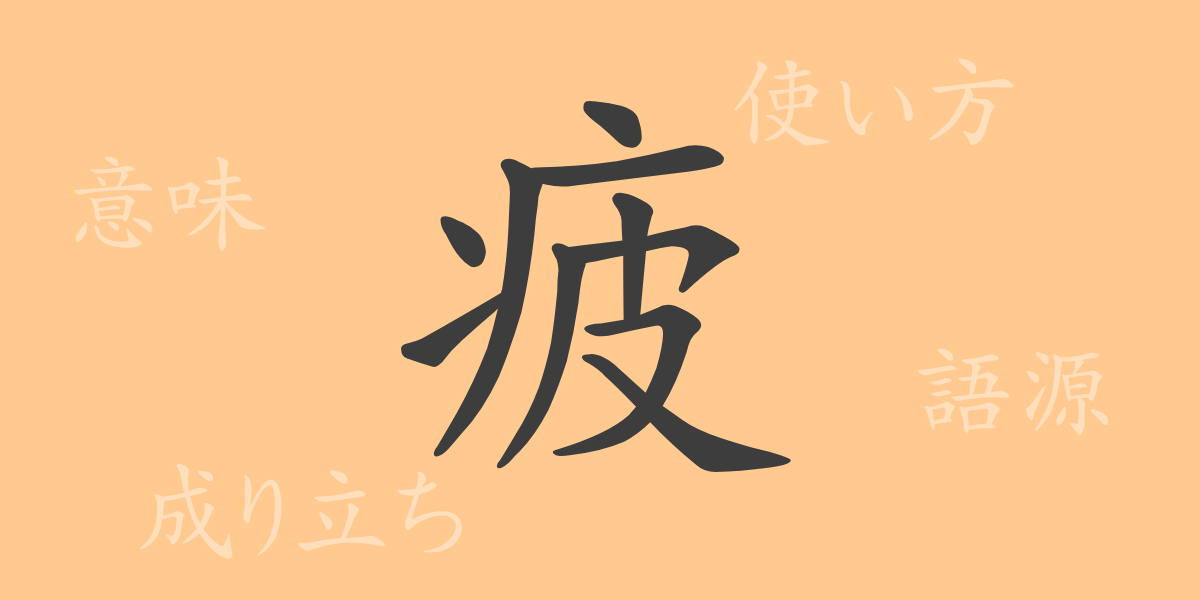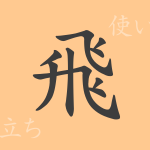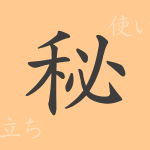The beauty of the Japanese language is reflected in its rich characters. Kanji(かんじ) are characters that deeply convey emotions and nuances through their shapes and meanings. This time, we spotlight the kanji “疲(つか)” which is closely related to our daily lives, and delve into its origin and modern usage. By understanding the history and meaning embedded in this single character, you may gain new insights and empathy when you feel tired.
The Origin of 疲(つか) (Etymology)
The kanji “疲(つか)” originated in ancient China. It means fatigue or being tired, and its shape combines the radical “疒(やまいだれ)” which represents illness or pain, with the character “皮(ひ)” which means skin or surface. This combination suggests the meaning “so tired that even the skin hurts,” visually expressing the feeling of fatigue.
The Meaning and Usage of 疲(つか)
The kanji “疲(つか)” refers to a state of physical or mental exhaustion. Specifically, it describes situations where fatigue accumulates due to long hours of work, exercise, or mental stress. It is used in various words such as “疲れる(つかれる)” (to get tired), “疲労(ひろう)” (fatigue), and “疲弊(ひへい)” (exhaustion), and can be found in everyday conversations and literary works alike.
Reading, Stroke Count, and Radical of 疲(つか)
- Reading: On’yomi(おんよみ) is “ヒ(hi)”, Kun’yomi(くんよみ) is “つか.れる(tsuka.reru)” and “つか.らす(tsuka.rasu)”
- Stroke Count: 10 strokes
- Radical: 疒(やまいだれ)
Idioms, Phrases, and Proverbs Using 疲(つか)
Here are some idioms and phrases that include “疲(つか)”:
- 疲労困憊(ひろうこんぱい): Describes a state of extreme exhaustion.
- 疲弊する(ひへいする): To become economically or mentally exhausted.
- 疲労回復(ひろうかいふく): The process of recovering from fatigue and returning to a healthy state.
These expressions are often used in contexts related to physical or mental conditions.
Summary of 疲(つか)
A single kanji character can contain a wealth of meaning and history. “疲(つか)” is no exception, playing a crucial role in expressing the fatigue we feel in our daily lives. By understanding the etymology and usage of “疲(つか)” through this article, we hope to deepen your appreciation for the language and enrich your daily communication.

























